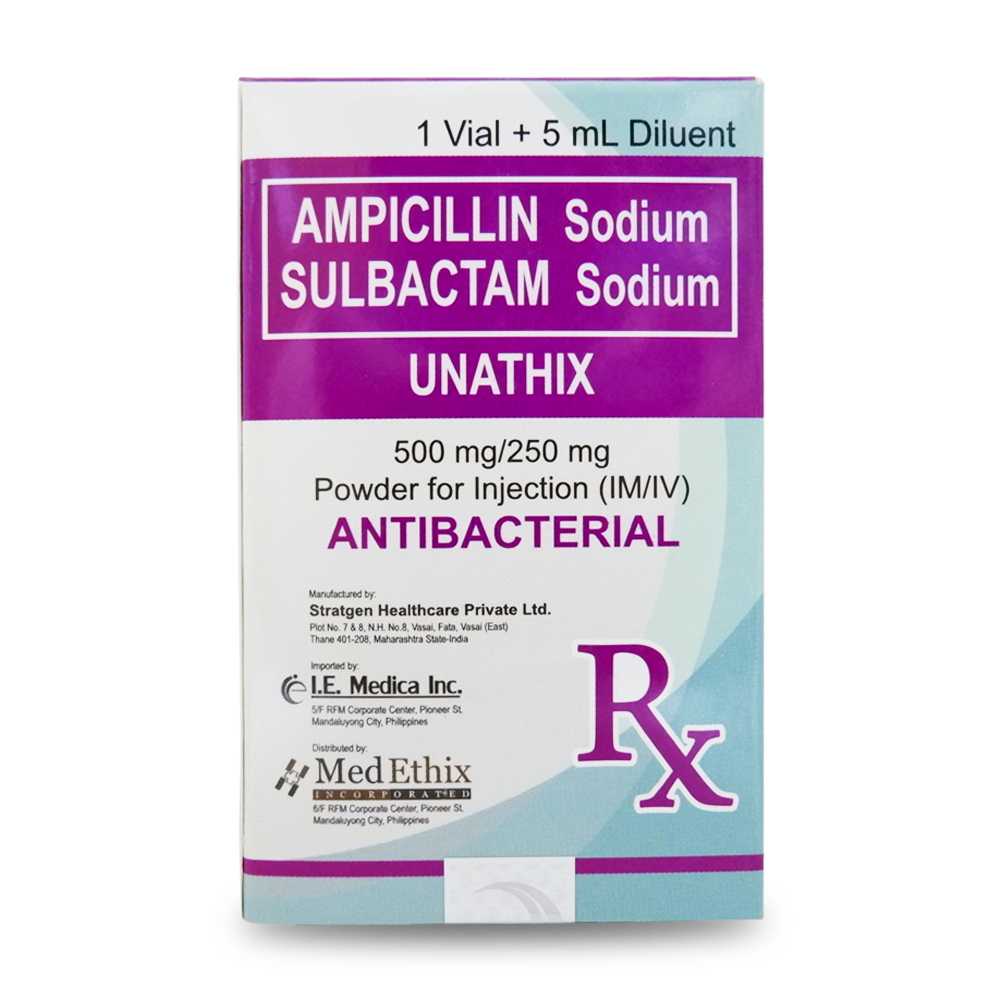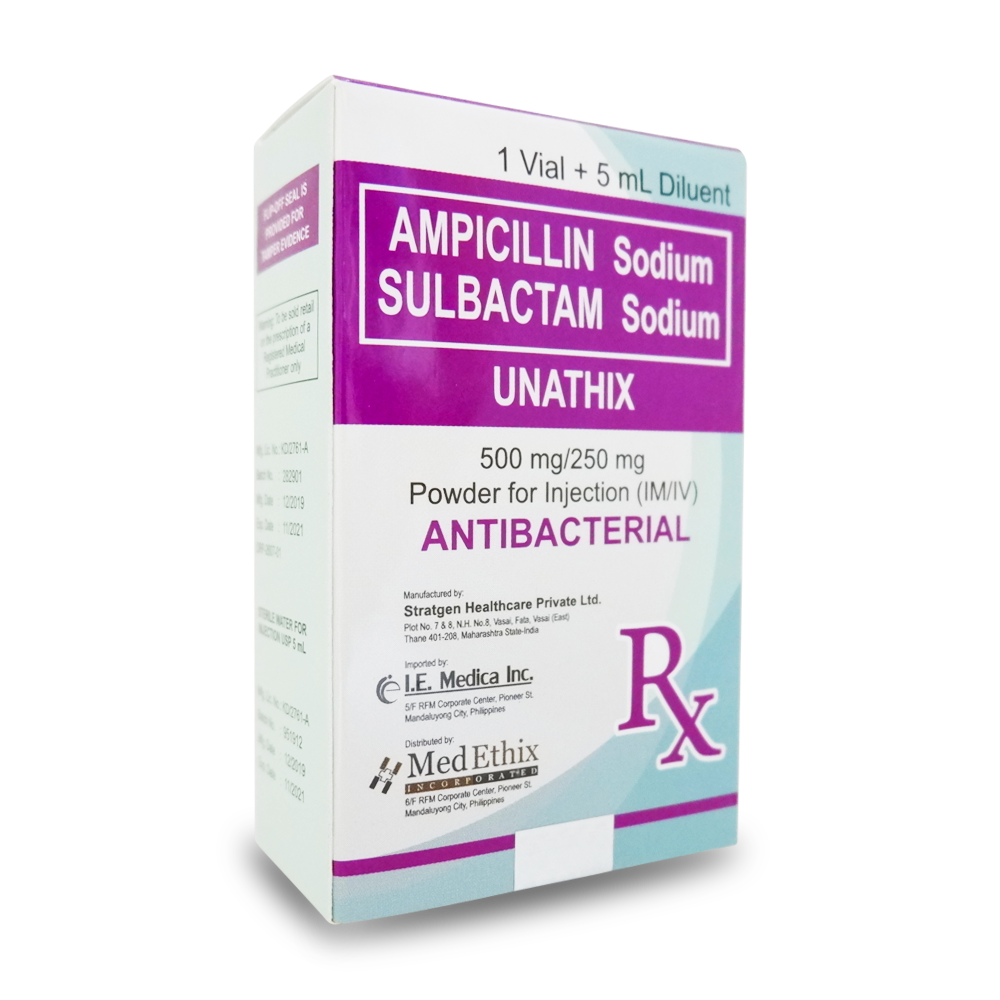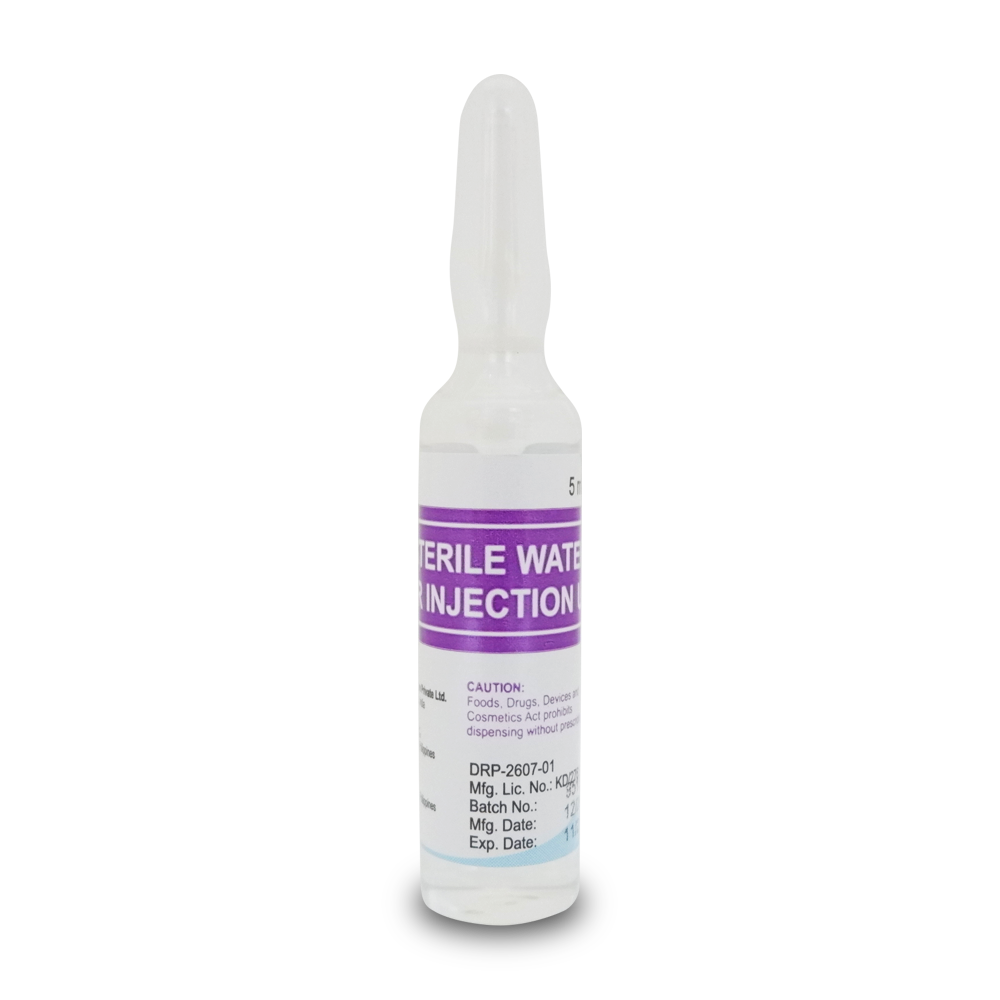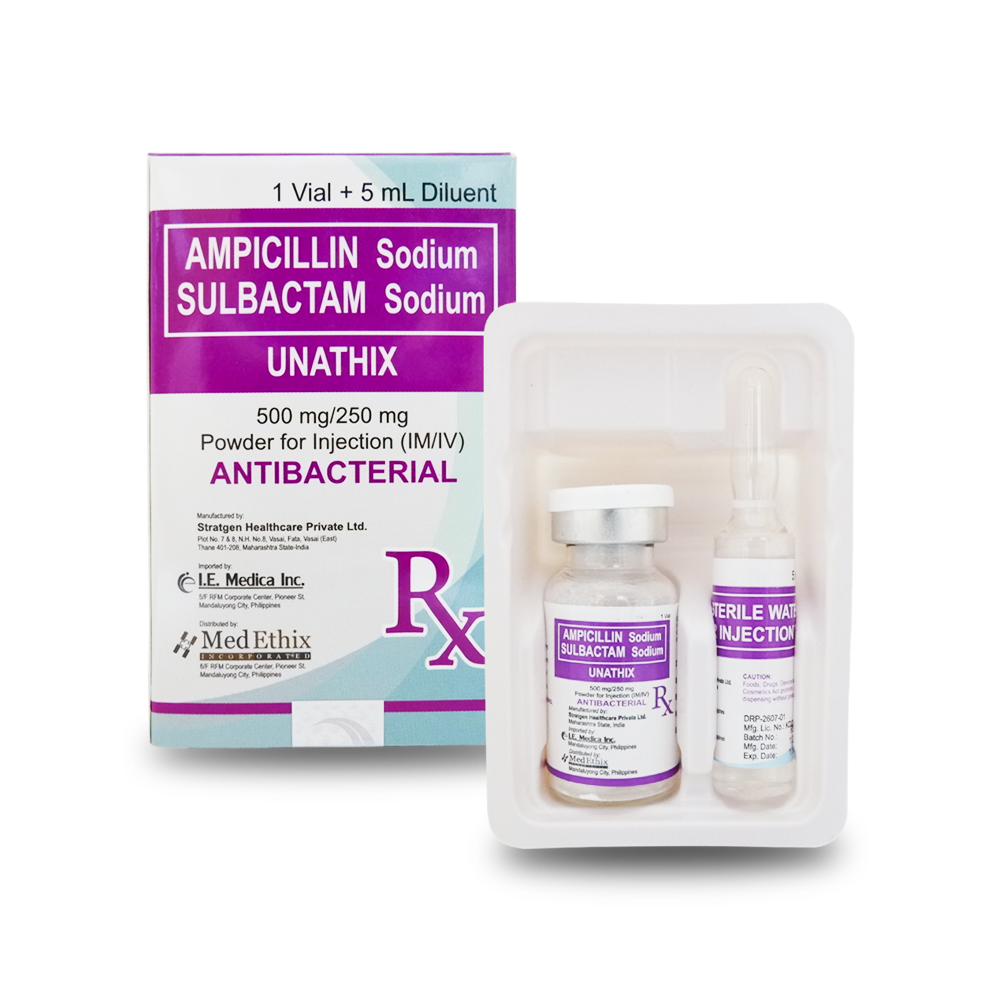





Generic Name: AMPICILLIN + SULBACTAM
Unathix
Drug Class and Mechanism:
Ampicillin Sulbactam is an antibacterial medication.
Ampicillin inhibits bacterial cell wall mucopeptide synthesis. Sulbactam inhibits plasmid-mediated beta-lactamase enzymes commonly found in microorganisms resistant to ampicillin.
Prescription:
Yes
Preparation:
500mg/250mg IV/IM
Storage:
Prescribed for:
For the treatment of skin and skin structure infections (e.g., cellulitis, diabetic foot ulcer).
For the treatment of moderate to severe bone and joint infections (e.g., osteomyelitis, infectious arthritis) caused by susceptible organisms.
Dosing:
Gynecologic infections, intra-abdominal infections
Adults
IV/IM 1.5 to 3 g every 6 h, not to exceed sulbactam 4 g/day (1.5 g of product contains sulbactam 0.5 g).
Skin and skin structure infections
Adults and children weighing at least 40 kg
IV/IM 1.5 to 3 g every 6 h, not to exceed sulbactam 4 g/day (1.5 g of product contains sulbactam 0.5 g).
Children 1 y of age or older (less than 40 kg)
IV 300 mg/kg/day (ampicillin 200 mg/sulbactam 100 mg) in divided doses every 6 h.
Renal function impairment
Adults CrCl at least 30 mL/min per 1.73 m 2
IV/IM 1.5 to 3 g every 6 to 8 h.
CrCl 15 to 29 mL/min per 1.73 m 2
IV/IM 1.5 to 3 g every 12 h.
CrCl 5 to 14 mL/min per 1.73 m 2
IV/IM 1.5 to 3 g every 24 h.
Hemodialysis
Administer the dose after dialysis
Drug Interaction:
Allopurinol
Increases potential for ampicillin-induced skin rash. If a skin rash develops, consider discontinuing one or both drugs.
Contraceptives, oral
May reduce efficacy of oral contraceptives. Use of alternative methods of contraception is advisable.
Live vaccines
Ampicillin/sulbactam may decrease the effectiveness of live vaccines. Use of live vaccines with ampicillin/sulbactam is not recommended.
Methotrexate
Methotrexate plasma concentrations may be elevated, increasing the risk of toxicity. Monitor patients for methotrexate toxicity and measure methotrexate concentrations. The dose and duration of leucovorin rescue may need to be increased. Consider use of alternative antibiotic treatment.
Probenecid
Renal tubular secretion of ampicillin and sulbactam may be decreased, resulting in increased and prolonged levels of ampicillin and sulbactam. It may be necessary to administer ampicillin/sulbactam less frequently when probenecid is coadministered.
Tetracyclines
May impair bactericidal effects of ampicillin/sulbactam. If possible, avoid coadministration of these agents.
Warfarin
The risk of bleeding may be increased, especially with large IV doses of ampicillin. Monitor coagulation status and adjust the warfarin dose as needed.
Laboratory Test Interactions
May cause false-positive urine glucose test results with Benedict solution, Fehling solution, or Clinitest tablets (enzyme-based tests [eg, Clinistix , Tes-tape ] are recommended). Ampicillin administration to pregnant women may result in a transient decrease in plasma concentration of total conjugated estriol, conjugated estrone, estradiol, and estriol- glucuronide.
Pregnancy:
Pregnancy Category B. There are no adequate and well-controlled studies in pregnant women.
Nursing mother:
Excreted in breast milk thus use with precaution.
Side effects:
Nausea, vomiting, or diarrhea may occur. If this medication is injected into a muscle, pain at the injection site may occur. If any of these effects persist or worsen, notify your doctor or pharmacist promptly.
For suspected adverse drug reaction, report to the FDA: www.fda.gov.ph
location_on Lagazo Village, Calinan, Davao City
local_phone (082) 299 1768
phone_android +63 917 301 4186